The building has two floors. The ground floor includes a double-height main process equipment room, as well as electrical and control rooms. Above those rooms, on the second floor, there is a machine room. A set of external stairs provides access from the second floor to the roof. The building frame and envelope consist of prefabricated concrete parts.
The longitudinal facades facing an adjacent parking lot and street to the south and the Vuosaari B power plant on the opposite side are clad with wing-shaped mottled red brick, custom-made for the project.
The east and west facades are double-skin structures. The east facade has an inner layer consisting of a glass curtain wall clad over by a screen of tall, thin tubes in white-painted steel, which protects the interior space from the sun. The west facade provides access to the auxiliary spaces on the ground floor, with a straight steel stair suspended between the outer screen of metal rods and an inner layer of in-situ concrete.

Vuosaari Heat Pump Building by Virkkunen & Co Architects. Photograph by Tuomas Kivinen.
Project description by Virkkunen & Co Architects
Virkkunen & Co Architects Ltd. introduces the Vuosaari Heat Pump Building, a vital part of the transition to carbon-neutral energy production by 2030 for electricity, heating, and cooling company, Helen Ltd., in the Finnish capital, Helsinki. The project converts an adjacent power plant's excess process heat and seawater heat from the nearby Baltic Sea into district heat that can be delivered to customers.
The project is located on an existing primary power plant site in east Helsinki, close to Vuosaari Harbor and the Baltic Sea. The new heat pump building sits next to two dominating architectural landmarks: Vuosaari Power Plant A from 1987, and Vuosaari Power Plant B, built in 1998 and designed by Virkkunen & Co Architects.
The new building is a simple box that fits into the existing industrial landscape. Within, a heat pump uses the excess heat of the internal cooling water circulation of the existing power plant in the winter, and the seawater heat for about half of the year. The client, Helen Ltd, sees facilities of this kind as a vital factor in their drive for carbon-neutral energy production by 2030.
The heat pump building has two floors. The ground floor includes a double-height main process equipment room, as well as electrical and control rooms. Above those rooms, on the second floor, there is a machine room. A set of external stairs provides access from the second floor to the roof. The building frame and envelope consist of prefabricated concrete parts, produced off-site and erected as ready-made parts on site. The interior architecture is informed by the exposed concrete surfaces of these structures.

Vuosaari Heat Pump Building by Virkkunen & Co Architects. Photograph by Tuomas Kivinen.
The longitudinal facades facing an adjacent parking lot and street to the south and the Vuosaari B power plant on the opposite side are clad with mottled red brick. These facades are based on the contrast between the lively but subtle variations in color and shape of the individual bricks and their arrangement within a rigid, exact stack-bond grid. The stacked bond references the red brick claddings of the adjacent Vuosaari B Power Plant. The wing-shaped bricks of the upper parts of the longitudinal walls of the heat pump building were custom-made for the project.
The building is located next to the main entrance to the entire power plant area. The east facade facing this entry point is a double-skin structure with an inner layer consisting of a glass curtain wall clad over by a screen of tall, thin tubes in white-painted steel, which protects the interior space from excess heat and glare of the sun. The building reveals its internal processes to the public.

Vuosaari Heat Pump Building by Virkkunen & Co Architects. Photograph by Tuomas Kivinen.
The west facade provides access to the auxiliary spaces on the ground floor. It also features a double-skin structure, with a straight steel stair suspended between the outer screen of metal rods and an inner layer of in-situ concrete. Like the east facade, the rods are placed diagonally at the same angle as the trapezoid bricks on the long sides of the building. This three-dimensional arrangement connects the different materials and finishes over all four sides of the building.
The facade treatments and details follow the interior spaces' floor divisions and room heights to communicate the building's internal spaces to the outside. These also bring the building to a human scale.
The project received the Architecture MasterPrize in 2022. This prestigious recognition emphasizes the building's seamless integration into the surrounding industrial landscape, its sustainable energy approach, and its thoughtful combination of materials and finishes.
The process layout and logistics on the site defined the building's placement. Its form and materials are based on its context. The wing-shaped red bricks on the long sides of the building were custom-made for the project. The building elevates the quality of its industrial setting through architectural means.
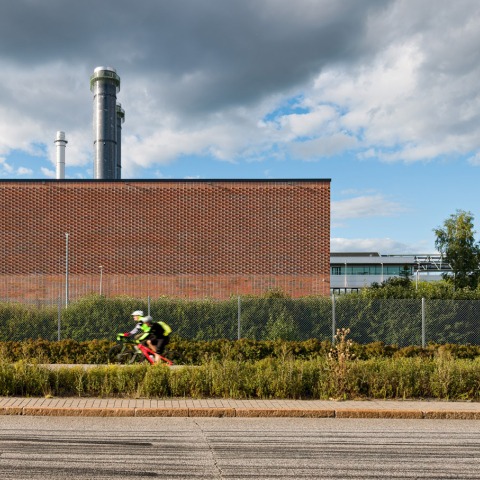

























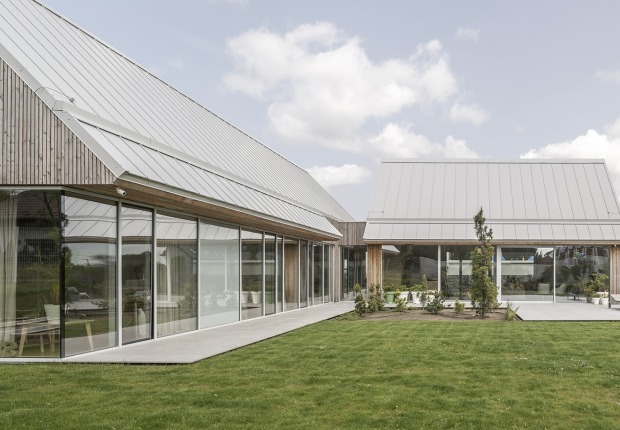
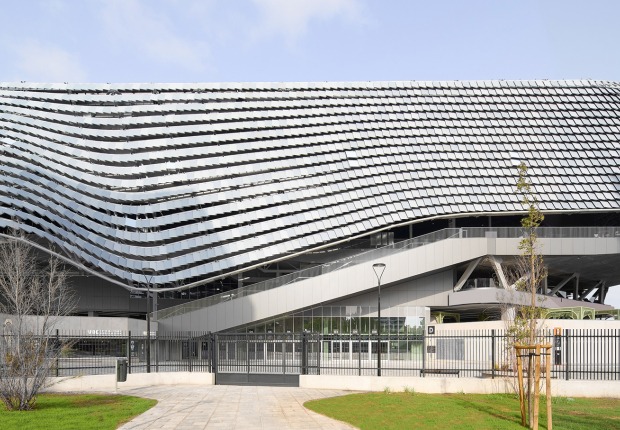
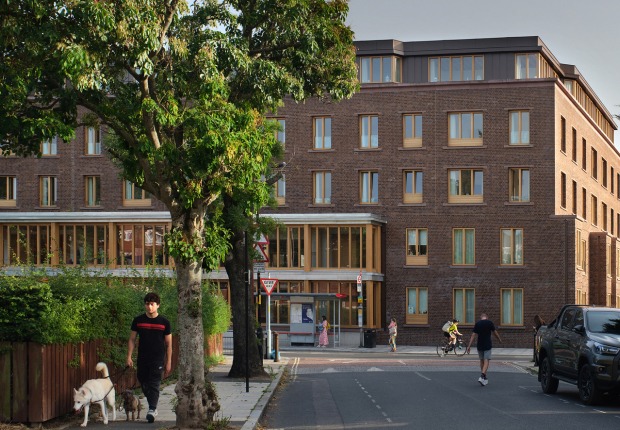

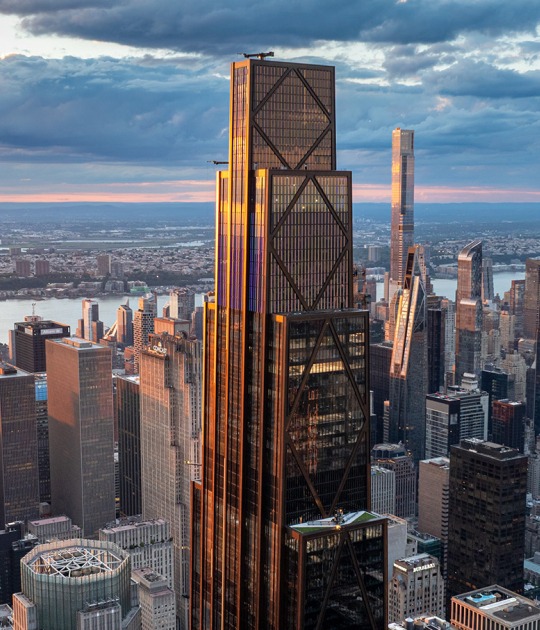
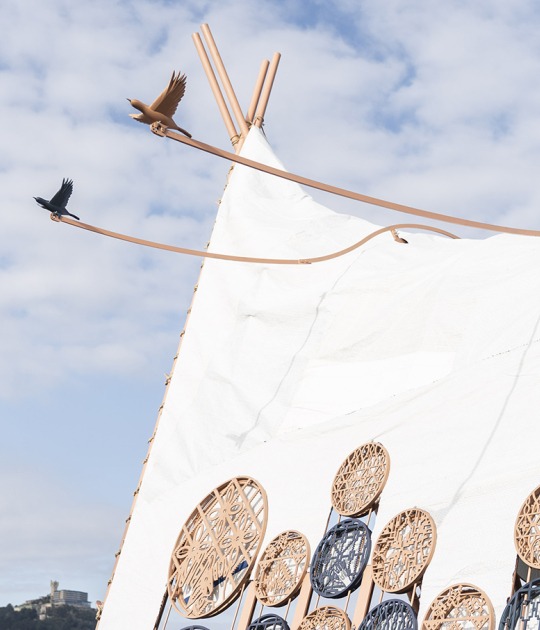

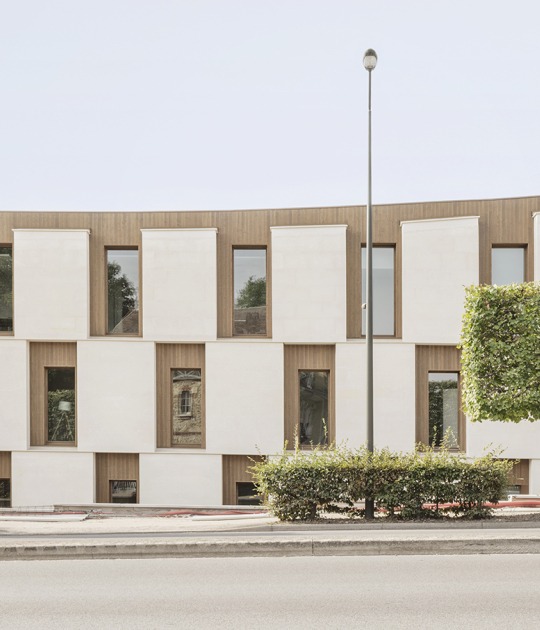
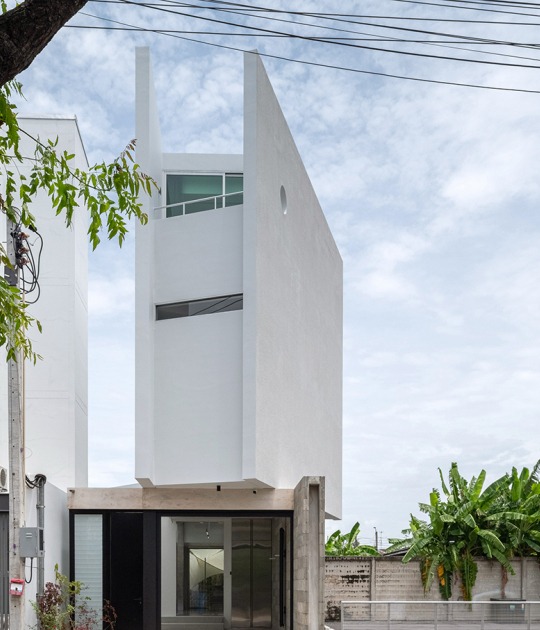

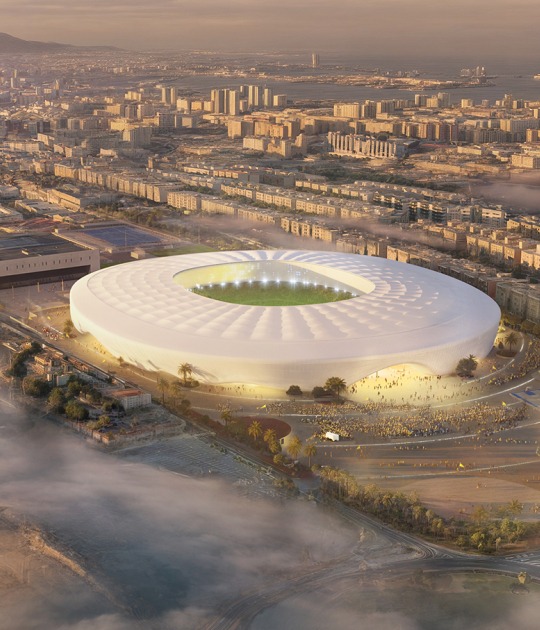
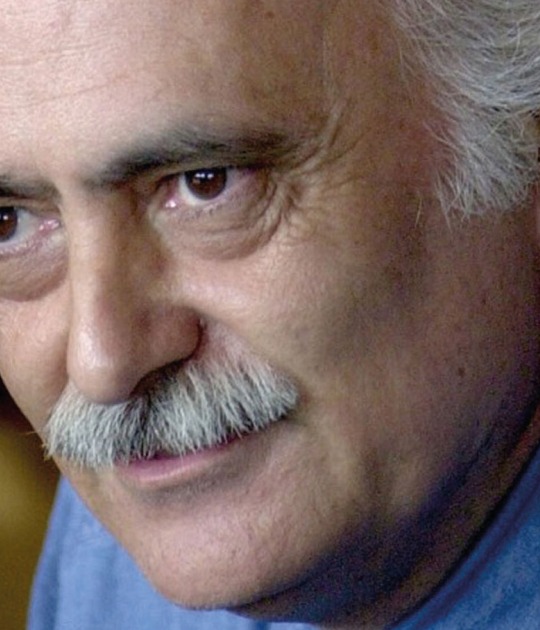
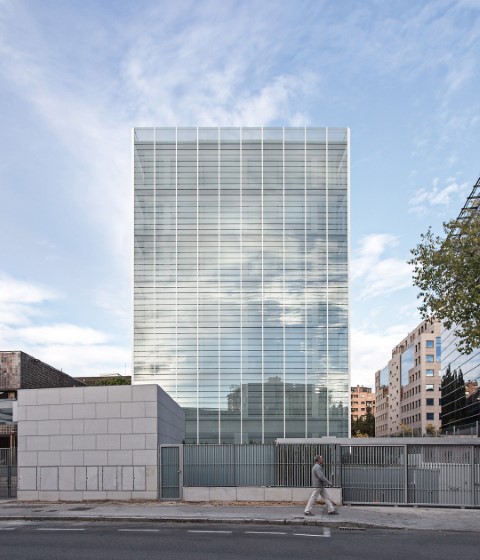

![Alcanada Thermal Power Plant [1957-1992] (Alcúdia, Balearic Islands) 2021. Photograph by Lluís Bort Alcanada Thermal Power Plant [1957-1992] (Alcúdia, Balearic Islands) 2021. Photograph by Lluís Bort](/sites/default/files/styles/mopis_home_news_category_slider_desktop/public/lead-images/metalocus_lluis-bort-cerezo_exp_arquitecturas-vacias_07_central-termica-de-alcanada.jpg?h=c0fc6a27&itok=bVjL6gMP)





